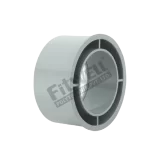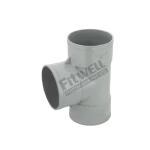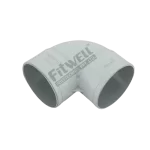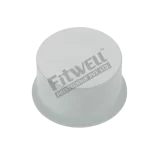CPVC vs. UPVC: Understanding the Differences and Applications
Introduction
Pipes and fittings play a crucial role in construction, plumbing, and industrial applications. However, with various materials available, it’s often challenging to choose the right one. In this guide, we’ll explore the differences between CPVC (Chlorinated Polyvinyl Chloride) and UPVC (Unplasticized Polyvinyl Chloride) pipes and fittings. Additionally, we’ll highlight the top CPVC and UPVC pipe fittings manufacturer and supplier in India – Fitwell.
What is CPVC?
CPVC (Chlorinated Polyvinyl Chloride) is a thermoplastic produced by the chlorination of PVC resin. Its chemical composition gives it enhanced resistance to high temperatures, making it ideal for both hot and cold water applications.
Key Features of CPVC:
- Temperature Resistance: Can handle temperatures up to 93°C (200°F), making it suitable for hot water and industrial liquid transport.
- Chemical Resistance: Resistant to many acids, bases, salts, and oxidants.
- Durability: High durability due to resistance against corrosion, scaling, and bacterial growth.
What is UPVC?
UPVC (Unplasticized Polyvinyl Chloride), commonly known as rigid PVC, is a strong and hard material. It is PVC without plasticizers, giving it a more rigid structure compared to CPVC.
Manufacturing Process of CPVC Piping Systems
Key Features of UPVC:
- Cost-Effective: More affordable than CPVC due to its simple manufacturing process.
- Corrosion Resistance: Does not corrode, rust, or decay, making it ideal for long-term use in plumbing.
- Chemical Resistance: Resistant to a wide range of chemicals but not suitable for hot water applications.
- Stiffness: Its rigidity makes it less prone to deformation under pressure.
CPVC vs. UPVC: Key Differences
When choosing between CPVC and UPVC, it’s important to understand their key differences in terms of temperature resistance, chemical resistance, flexibility, cost, and applications.
Temperature Resistance: One of the most significant differences is in how they handle temperature. CPVC pipes are designed to withstand high temperatures, up to 93°C (200°F). This makes them ideal for hot water systems and industrial liquid transport. On the other hand, UPVC pipes have a lower temperature tolerance, usually up to 60°C. Therefore, UPVC pipes are more suited for cold water supply and drainage systems.
Chemical Resistance: Both CPVC and UPVC pipes offer good resistance to a variety of chemicals. However, CPVC has a broader range of chemical resistance, making it more suitable for industrial applications involving acids, bases, salts, and oxidants. UPVC, while chemically resistant, is not suitable for transporting hot chemicals because of its lower temperature tolerance.
Flexibility: CPVC is more flexible compared to UPVC. This flexibility can be beneficial during installation, especially in complex plumbing layouts where pipes need to be bent or maneuvered. UPVC, being more rigid, is less flexible and can be challenging to install in tight spaces or complex configurations.
Cost: When considering cost, UPVC generally comes out as the more affordable option. Its simple manufacturing process makes UPVC pipes a cost-effective choice for large-scale installations where high-temperature resistance is not a critical factor. In contrast, CPVC is slightly more expensive due to its enhanced properties, such as higher temperature and chemical resistance.
Applications:
- CPVC is commonly used for hot and cold water supply in residential and commercial buildings. It is also suitable for industrial applications, such as chemical transport and fire sprinkler systems, where high temperature and chemical resistance are required.
- UPVC is widely used for cold water distribution, irrigation in agriculture, and sewage and drainage systems. Its rigidity and resistance to corrosion make it ideal for long-term applications in these areas.
Why Fitwell Pipe Fittings?
- High-Quality Materials: Manufactured using the best-grade CPVC and UPVC materials, ensuring long-lasting performance.
- Compliance with Standards: Fitwell pipe fittings are designed to meet international standards for safety and durability.
- Versatility: Offers a wide range of pipe fittings suitable for various applications, including plumbing, irrigation, and industrial use.
- Reliability: Recognized as one of the top CPVC and UPVC pipe fittings manufacturers and suppliers in India, Fitwell is committed to quality and customer satisfaction.
For more information on Fitwell’s product range, visit Fitwell Pipe Fittings.
How to Choose Between CPVC and UPVC for Your Needs
When deciding between CPVC and UPVC pipes, consider the following factors:
- Temperature Requirements: If you need a piping system for hot water supply, choose CPVC. For cold water or drainage, UPVC is more suitable.
- Chemical Handling: For transporting chemicals, especially at higher temperatures, opt for CPVC.
- Cost: UPVC is generally more affordable. For applications that do not require high-temperature resistance, it can be a cost-effective solution.
- Flexibility Needs: CPVC offers more flexibility during installation, which is useful for complex plumbing layouts.
Conclusion
Understanding the differences between CPVC and UPVC is essential for choosing the right piping system for your specific needs. While CPVC is suitable for high-temperature and chemical applications, UPVC shines in cold water systems, drainage, and irrigation. Fitwell, as a renowned CPVC and UPVC pipe fittings manufacturer and supplier in India, offers quality products to meet all your plumbing requirements.
Stay on the forefront of industry trends by checking out our latest content
Stay ahead with our latest content, designed to keep you informed on the newest industry trends and insights. Discover valuable updates that help you lead in your field.

Trusted uPVC Pipes Manufacturers for India’s Top Contractors
Introduction: The Surge in Demand for uPVC Pipes Among Top Contractors in India The construction and infrastructure sectors in India have witnessed a significant transition toward sustainable and long-lasting materials.
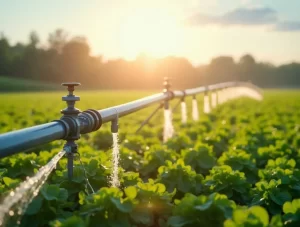
Top Innovations in Agricultural Pipe Fittings for Water Savings [2025]
Introduction to Agricultural Pipe Fittings and Water Sustainability Agricultural pipe fittings play a pivotal role in building efficient irrigation systems, crucial for modern farming practices. By exploring the versatility of

Expeart Tips from MDPE Pipe Fittings Manufacturers to Avoid Failures
Expeart Tips from MDPE Pipe Fittings Manufacturers to Avoid Failures Understanding MDPE Pipe Fittings: An Overview MDPE (Medium Density Polyethylene) fittings, used extensively in gas and water systems, offer strong,
Request a Free Consultation
Get personalized plumbing solutions with a free consultation from Fitwell.

